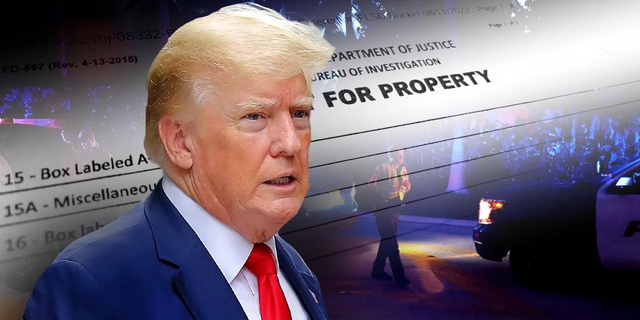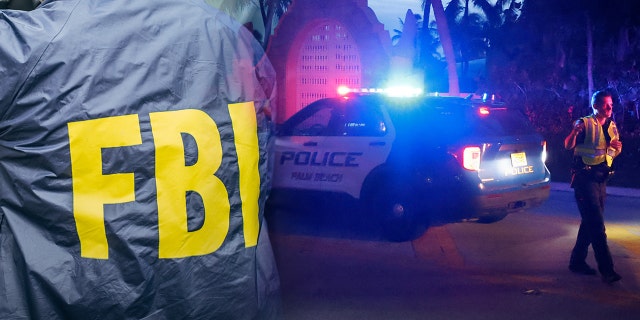Fox News Flash top headlines for August 18
Fox News Flash top headlines are here. Check out what’s clicking on Foxnews.com.
U.S. Magistrate Judge Bruce Reinhart on Thursday ordered the Justice Department to redact the affidavit that was used to obtain the FBI’s search warrant for its raid on former President Trump’s Mar-a-Lago home and said he would release at least a portion of it.
Reinhart, during the highly anticipated hearing in the West Palm Beach Division of Florida, said that the entire affidavit should not be kept under seal, despite the Justice Department’s argument that the release would jeopardize future steps in the investigation and provide a “roadmap” for the probe.
The Justice Department asked Reinhart to keep the document under seal to “protect the integrity of an ongoing law enforcement investigation that implicates national security.”
FBI SEIZES PRIVILEGED TRUMP RECORDS DURING RAID; DOJ OPPOSES REQUEST FOR INDEPENDENT REVIEW: SOURCES
Reinhart also ordered that some documents connected to the search warrant be unsealed Thursday — including the application for the warrant, the motion to seal the affidavit, and the cover sheet.
As for the affidavit, Reinhart ordered that government prosecutors submit a version of the affidavit with proposed redactions within the week. The deadline for the Justice Department to submit the proposed redactions is set for Aug. 25 at noon.
Reinhart will then review those redactions and determine how best to proceed — whether to accept the recommendations from government prosecutors or perform his own redactions instead.

The judge also reminded that the government or media, the two parties to the suit, can appeal his ruling if one or both object to his proposed redactions, which would remain under seal.
Government prosecutor Jay Bratt argued that unsealing the affidavit would “provide a roadmap” of an ongoing investigation still in its early stages.
Bratt also said the country is in a “volatile” state, and he warned that releasing the names of witnesses or FBI agents would “chill” other witnesses who may still come forward.
“This is not a precedent we want to set,” Bratt said. “The government is very concerned about the safety of witnesses in this case.”
Media organizations arguing the affidavit should be unsealed, the government and Reinhart all agreed that this is a unique and unprecedented case.
Charles Tobin, who argued for the Washington Post and other media organizations, said the raid on Mar-a-Lago was one of the most significant law enforcement actions in the nation’s history, saying, “The public interest could not be greater.”
Trump, while not a party in the hearing, demanded this week that the affidavit be unsealed and released in an unredacted form.
“In the interest of TRANSPARENCY, I call for the immediate release of the completely Unredacted Affidavit pertaining to this horrible and shocking BREAK-IN,” Trump posted earlier this week.
Trump spokesman Taylor Budowich, in a statement after Reinhart’s ruling, said, “President Trump has made clear his view that the American people should be permitted to see the unredacted affidavit related to the raid and break-in of his home, Mar-a-Lago.”
“Today, magistrate Judge Reinhard [sic] rejected the DOJ’s cynical attempt to hide the whole affidavit from Americans,” Budowich said. “No redactions should be necessary and the whole affidavit should be released, given the Democrats’ penchant for using redactions to hide government corruption, just like they did with the Russia hoax.”
Meanwhile, the documents Reinhart unsealed and released Thursday included the “criminal cover sheet” as well as the application for the warrant.
The government, in that application, said the “basis for the search” was “evidence of a crime” and “contraband, traits of crime, or other items illegally possessed.”
The application said the search is related to “willful retention of national defense information,” “concealment or removal of government records” and “obstruction of federal investigation.”
Reinhart signed the application for the warrant.
On Aug. 5, U.S. Attorney Juan Antonio Gonzalez filed a motion to seal the search warrant and accompanying documents, saying that “there is good cause because the integrity of the ongoing investigation might be compromised” and “evidence might be destroyed.”

The FBI has been criticized for raiding former President Donald Trump’s Mar-a-Lago home.
(Fox News)
Reinhart last week unsealed the FBI’s search warrant and property receipt from the search. Reinhart signed the warrant on Aug. 5, giving the FBI authority to conduct its search.
FBI BULLETIN WARNS OF ‘DIRTY BOMB’ THREAT, INCREASING CALLS FOR ‘CIVIL WAR’ AFTER RAID OF MAR-A-LAGO
According to the property receipt, reviewed before its release by Fox News Digital, FBI agents took approximately 20 boxes of items from the premises, including one set of documents marked as “Various classified/TS/SCI documents,” which refers to top secret/sensitive compartmented information.
Records covered by that government classification level could potentially include human intelligence and information that, if disclosed, could jeopardize relations between the United States and other nations, as well as the lives of intelligence operatives abroad. However, the classification also encompasses national security information related to the daily operations of the president of the United States.
The property receipt also shows that FBI agents collected four sets of top secret documents, three sets of secret documents and three sets of confidential documents.
The property receipt does not reveal any details about any of those records.

A guard stands outside Mar-a-Lago in Palm Beach, Florida.
(Alon Skuy/Fox News Digital)
The list also includes a “leatherbound box of documents,” binders of photos, handwritten notes, miscellaneous documents, miscellaneous top secret documents, miscellaneous confidential documents, as well as other records.
The government conducted the search in response to what it believes to be a violation of federal laws: 18 USC 793 — gathering, transmitting or losing defense information; 18 USC 2071 — concealment, removal or mutilation; and 18 USC 1519 — destruction, alteration or falsification of records in federal investigations.
FBI SEIZED CLASSIFIED RECORDS FROM MAR-A-LAGO DURING SEARCH OF TRUMP RESIDENCE
The allegation of “gathering, transmitting or losing defense information” falls under the Espionage Act.
The former president and his team are disputing the classification and say they believe the information and records to have been declassified.
Sources familiar with the investigation told Fox News Digital that the FBI also seized boxes containing records covered by attorney-client privilege and potentially executive privilege during its raid.
Sources told Fox News that, due to attorney-client privilege, Trump’s team asked the Justice Department for their position on whether they would support a third party, independent special master to review those records, but sources told Fox News that DOJ notified Trump’s team that they would oppose that request.
Freelance producer Karen D’uva also contributed to this report.



Comments